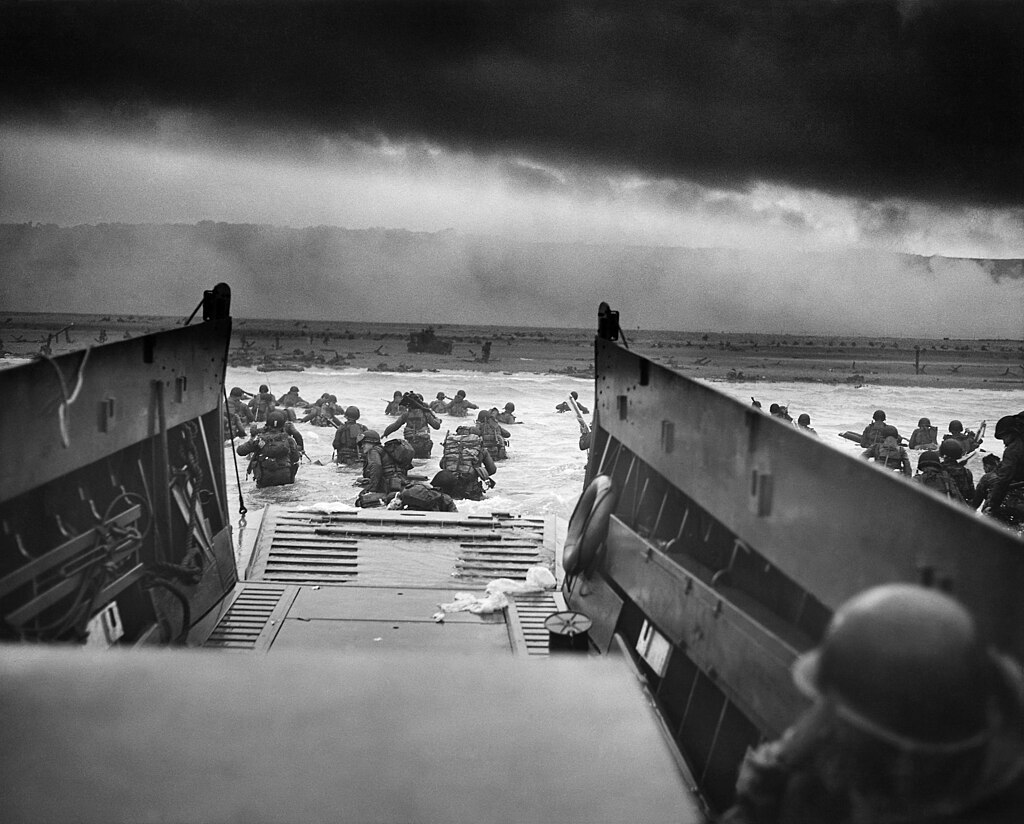Celebrating D-day and diversity

Today, we celebrate the 80th anniversary of the D-Day landings that marked the beginning of the end for the Nazi regime and the turning point of the Second World War, LGBTQ+ Pride Month celebrating sexual and gender diversity around the world, and Gypsy, Roma, Traveller History Month celebrating the rich cultural diversity and history of this marginalised community.
D-Day was the start of the overthrow of the Nazi killing machine. The D-Day invasion represented a major turning point in the Allied battle against the Nazis that had systematically isolated and exterminated millions in an attempt to purge Nazi occupied territories of Jews, Roma, the disabled, LGBTQ+ people and other marginalised groups, each forced to wear a distinctive symbol so they could be easily identified for persecution and death, from the yellow Star of David for Jews to the pink triangle for LGBTQ+ people.
At the same time, those LGBTQ+ people fighting to free Europe from oppression were not welcomed within their own militaries. Male homosexuality was a criminal offence in Britain until 1967, while being an LGB in the British military was unlawful until 2000, although in recent years, an increasing number of openly LGBT people have served in plain sight.
Despite their selfless service, many armed forces personnel were dishonourably dismissed after their sexual orientation was discovered.
A memorial for the UK’s LGBT+ armed forces personnel is now going to be built at the National Memorial Arboretum in Staffordshire, partly funded by the Government, in response to an independent review into the historical treatment of people who were sacked or forced out of the military for being gay. Those who liberated the LGBTQ+ survivors of the Nazi concentrations were not allowed to express their solidarity.
Visiting the Normandy landing sites in 2018, one queer former soldier mused how “We couldn’t help but consider that xenophobia and hatred of gay people, and other groups seen as outsiders, still exists in this world. The visit to the D-Day beaches underscored our certainty that we need to do all in our power to ensure nothing like this ever happens again.” One of the most important lessons of the Second World War is how easily populism and desperation can sweep a population along into normalising things that would previously have appalled them.
One woman dismissed from the armed forces after falling in love with another woman told the BBC that “We’ve [LGBTQ+ armed forces personnel] always felt like we were swept under the carpet when they kicked us out,” one soldier dismissed after falling in love with a fellow soldier told the BBC… [but after this memorial is built] we won’t feel like a dirty secret any more,” adding that “It was important the memorial was built in the National Memorial Arboretum “because we’re no different to anyone else – but we were treated different for so long”. Sadly, the memorial comes too late for many, who were lawfully discriminated against and have since died before even an apology was issued by the state.
On the release of Lord Etherton’s report, Prime Minister Rishi Sunak apologised in Parliament, called the ban “an appalling failure of the British state” and promised compensation for those affected. This compensation is eagerly awaited by those who were impacted, particularly those who are now elderly and suffering financially.
You can read more about the experience of LGBTQ+ US military recruits from The National World War II Museum.
Further reading
McCurdy, D. (2018, November 7). LGBTQ travelers visit the D-Day landing beaches of Normandy. Meet me on board. https://www.meetmeonboard.com/2018/11/lgbtq-travelers-visit-the-d-day-landing-beaches-of-normandy
Ministry of Defence. (2022, July 1). Members of the Army LGBT Network share their stories. Army: be the best. https://www.army.mod.uk/news-and-events/news/2022/07/army-lgbt-network-pride-stories-part-1
Parry, J. (2024, April 25). LGBT veterans memorial: ‘We’re not a dirty secret’. BBC News. https://www.bbc.co.uk/news/articles/ck7l3kmnnmjo




Leave a Comment (note: all comments are moderated)